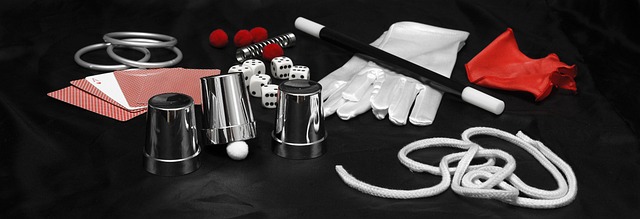Dive into the secret science of spotless glassware with our guide 'The Art of Cleaning Glassware: Tips and Tricks'. Discover clever techniques and essential tools that will revolutionize the way you clean your glassware, making it gleaming and streak-free every time.
Why is Clean Glassware Important?
Clean glassware is not just about aesthetics; it plays a vital role in various aspects of our daily lives. Firstly, clean glassware ensures a pleasurable dining experience. When sipping from a sparkling wine glass or enjoying a refreshing beverage from a crystal-clear tumbler, the visual appeal enhances the overall taste and presentation of the drink. Additionally, clean glassware prevents any lingering residues or odors from previous uses, ensuring a fresh and uncontaminated taste.
Furthermore, clean glassware is essential for hygiene and safety reasons. Glasses used for serving beverages can harbor bacteria and other pathogens if not properly cleaned. This can lead to potential health risks, especially when multiple people are using the same glassware. By regularly cleaning and sanitizing glassware, we can eliminate these harmful microorganisms and reduce the chances of illness.
Clean glassware is also crucial for maintaining the longevity of the glass itself. Over time, dirt, stains, and deposits can accumulate on the surface of the glass, which may lead to etching or scratching. By properly cleaning and handling glassware, we can preserve its clarity and integrity, ensuring that it remains in pristine condition for years to come.
Finally, clean glassware is essential in professional settings such as restaurants, bars, and hotels. In these establishments, the presentation and cleanliness of glassware significantly impact the reputation and customer satisfaction. A spotless glass can leave a lasting impression on customers, instilling confidence in the establishment's cleanliness standards and attention to detail.
Image of dirty versus clean glassware showcasing the importance of cleanliness.
Choosing the Right Cleaning Tools: Is there a 'Magic Wand'?
When it comes to cleaning glassware, having the right tools can make all the difference. While there may not be a "magic wand" per se, there are certainly specific tools that can make the task much more efficient and effective.
First and foremost, a soft-bristled brush is a must-have for cleaning glassware. This type of brush is gentle enough to remove dirt and stains without scratching or damaging the glass surface. It is particularly useful for cleaning narrow glasses, such as champagne flutes or wine glasses, where reaching the bottom can be challenging.
In addition to a soft-bristled brush, a microfiber cloth is another essential tool for cleaning glassware. These cloths are designed to attract and trap dust and particles, leaving the glass surfaces spotless and streak-free. They are also gentle enough to use on delicate glassware without leaving any lint or residue behind.
For stubborn stains or hard water deposits, a specialized glass cleaner can be highly effective. Look for a cleaner specifically formulated for glass to ensure that it does not leave any residue or film on the surface. It is important to follow the instructions provided by the manufacturer to achieve the best results.
When it comes to drying glassware, using a lint-free towel or air-drying rack is recommended. This helps to prevent any streaks or water spots from forming on the glass surface. Avoid using regular dish towels or paper towels, as they can leave lint or fibers on the glass, detracting from its clarity and cleanliness.
Finally, it is important to consider the material of the glassware when choosing cleaning tools. For delicate or hand-painted glassware, it is advisable to use gentler cleaning methods, such as hand washing with mild dish soap or using a dishwasher with a delicate cycle. Always check the manufacturer's instructions for any specific cleaning recommendations for your glassware.
Unlocking the Secret Techniques: 'Cleanliness is next to godliness?'
When it comes to cleaning glassware, there are a few secret techniques that can take your cleaning game to the next level. One such technique is to soak glassware in a mixture of warm water and vinegar. The acidity of the vinegar helps to break down stubborn stains and remove any lingering odors. Simply fill a sink or basin with equal parts warm water and vinegar, and let the glassware soak for about 15-30 minutes before rinsing and drying thoroughly.
Another secret technique is to use a solution of baking soda and water to tackle tough stains or residue. Baking soda is a natural abrasive that can help remove stubborn grime without scratching the glass surface. Create a paste by mixing baking soda with a small amount of water, then apply it to the stained area and gently scrub with a soft brush or cloth. Rinse thoroughly and dry to reveal sparkling clean glassware.
Additionally, for glassware with intricate designs or hard-to-reach areas, using a toothbrush can be a game-changer. The small bristles of a toothbrush allow for precise cleaning and can easily reach into crevices and corners. This technique is particularly useful for cleaning the stems or bases of wine glasses or removing dirt from etched patterns on glassware.
Remember, when it comes to cleaning glassware, patience is key. Take your time and pay attention to the details. Ensure that all cleaning solutions are thoroughly rinsed off to prevent any lingering residues. Properly dry the glassware to avoid water spots or streaks.
Step-by-step photo guide demonstrating the correct cleaning techniques.
Do's and Don'ts of Glassware Cleaning: Are you making these common mistakes?
When it comes to cleaning glassware, it's important to know the do's and don'ts to avoid common mistakes that can damage or compromise the quality of your glassware. First and foremost, do handle glassware with care. Glass is fragile and can easily break or chip, so be gentle when washing and drying.
Next, do use mild dish soap or specialized glassware cleaner. Avoid using harsh chemicals or abrasive cleaners that can scratch or damage the glass surface. Also, do use a soft cloth or sponge for cleaning, as rough materials like steel wool can leave scratches.
On the other hand, don't use hot water on cold glassware or vice versa. Extreme temperature changes can cause glass to crack or shatter, so always let glassware adjust to room temperature before cleaning or storing.
Additionally, don't stack wet glassware. Moisture trapped between the glasses can lead to mold or mildew growth, and the weight of the stacked glasses can cause breakage. Allow glassware to dry completely before stacking or storing to prevent any damage.
Finally, don't neglect the importance of proper storage. Avoid overcrowding glassware in the cabinet, as this can lead to chips or cracks. Use dividers or soft padding to separate and protect glassware, especially delicate stemware.
The Art of Cleaning Glassware: Tips and Tricks:
| Tip | Tool | Technique | Result |
|---|---|---|---|
| Soak glassware in vinegar and baking soda to remove stubborn stains | Soft-bristled brush | Scrub with a circular motion | Streak-free shine |
| Use a lint-free cloth when drying glassware | Microfiber cloth | Gently pat the glass until dry | No lint left behind |
| Use a soft sponge to clean delicate glassware | Soft sponge | Gently rub the glass with the sponge | No scratches on the glass |
| Run glassware through a dishwasher cycle | Dishwasher | Use a gentle cycle and mild detergent | Sparkling clean glassware |
With the right approach and tools, cleaning glassware can be less of a chore and more of an art. The gleam of spotless glassware is not only visually pleasing but also essential for enhancing your overall dining or drinking experience. So, implement these tips and tricks, and let your glassware sparkle like never before!



